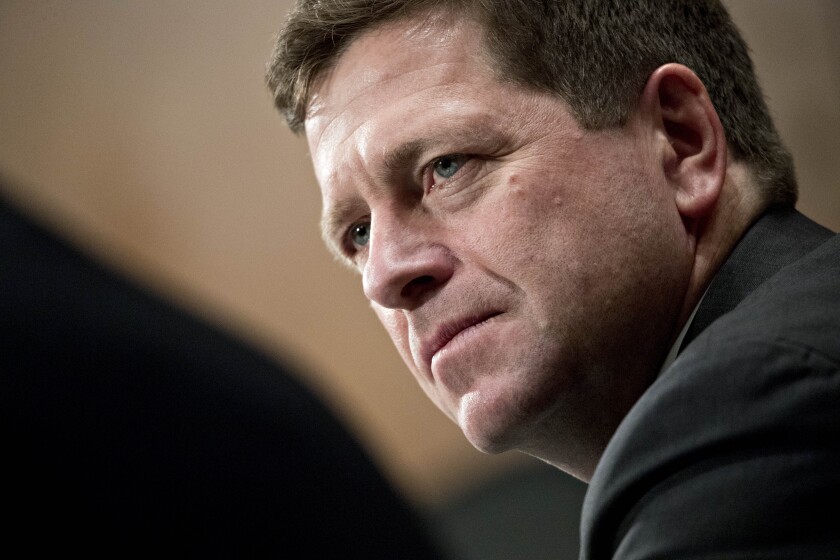
SEC Chairman Jay Clayton said Monday that stock markets should continue to operate when asked in a CNBC television interview whether exchanges should suspend trading because of volatility triggered by the spreading coronavirus.
“Markets should continue to function through times like this,” Clayton said in the interview conducted by telephone. “We’ve been in contact with the various institutions” across Wall Street, he said.
Clayton was responding to speculation that stock exchanges might suspend trading as the coronavirus continues to fuel wild market swings and banks slash growth forecasts. U.S. equity exchanges plunged at the opening bell on Monday, triggering circuit breakers that halted trading across stock markets and signaling another bruising week for companies and their investors.
Despite the gyrations, Clayton said, markets have functioned well “over the past two weeks of a very volatile time.” He said the SEC had been working with Wall Street firms to ensure they have appropriate plans in place to endure the pain.
Clayton said the current environment differs from previous market shocks, such as the 2008 credit crisis or the terrorist attacks of September 11, 2001, partly because of steps that have been taken to bolster the financial industry since then.
“I think our banks are in a much stronger position today than they were then,” Clayton said in the interview. “This is a demand and supply shock,” he said, adding that he’s concerned businesses might not have access to all the credit they need.
In a Bloomberg Television interview, Nasdaq Chief Executive Officer Adena Friedman echoed Clayton’s comments about markets being more resilient than they were during past crises. She also said that trading should continue for the sake of investors and also to allow companies to raise needed capital.
“It is critically important that the markets stay open at this time, as opposed to trying to take breaks in the middle,” Friedman said in an interview with Bloomberg’s Erik Schatzker. “I think that’ll just push off the situation a little bit, but actually could create other pent-up issues.”
--With assistance from Erik Schatzker.
